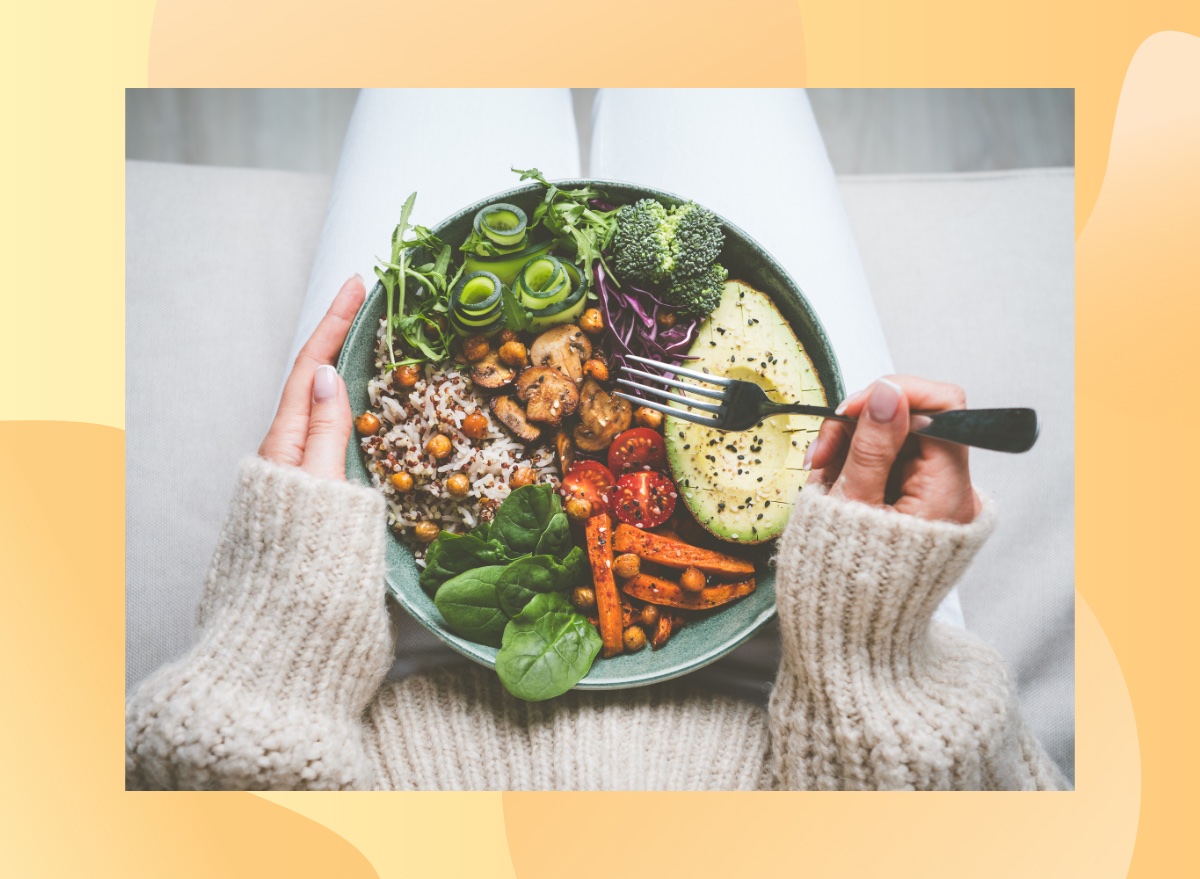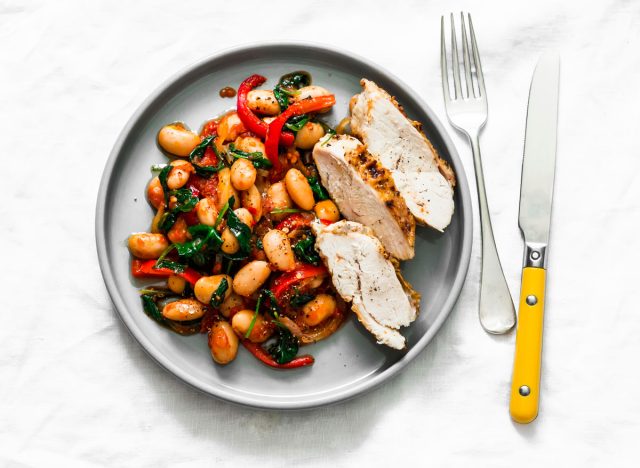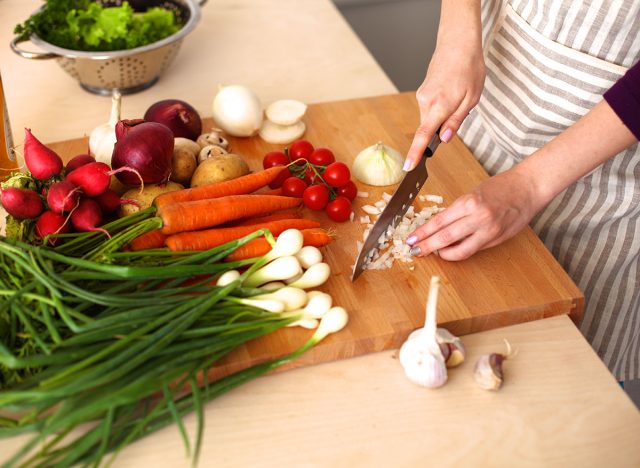How Many Calories Should You Eat at Dinner To Lose Weight?

Determining the ideal number of calories to consume at dinnertime can be a game-changer in your weight-loss efforts. After all, if you typically enjoy a larger, higher-calorie dinner, it can cause setbacks in your progress. That being said, besides the calorie count, you should also be mindful of what you put on your plate and portion control. We spoke with a registered dietitian who explains how to uncover the number of calories you should eat at dinner to lose weight. This way, you can savor a delicious, nutrient-dense meal without derailing your efforts.
"Weight loss can be a challenging journey. There is too much information, and much of it is conflicting. The problem is that it does come down to what and how we eat [daily]," explains Destini Moodi, RD, CSSD, LD, a registered dietitian specializing in sports performance, body composition changes, and injury recovery from Top Nutrition Coaching. "Dinner tends to be the hardest because it is at the end of the day, we are tired, want to have something that everyone around will like and will help with weight loss goals. On the surface, this seems like a monumental task. It does not have to be."
How Many Calories Should You Eat at Dinner To Lose Weight?

To identify your dinnertime calorie goal, you first need to know your total calorie goal for the day. Finding an online calorie calculator is a great tool to determine your baseline.
"The more questions that are asked the better to determine a calorie amount to meet your goals," says Moody. "Once you have this number, divide it by three. This is the number of calories to have at each of your three main meals. For example, if you are trying to get 1500 calories per day, each meal should contain 500 calories per day."
If you want to lose weight, it's best to evenly spread out your calories throughout the day so you can burn them via exercise and physical activity. If you save a solid chunk for dinner, then there's not much time to burn those calories between your last meal and bedtime.
"Once you have your baseline of calories per meal, you can plan accordingly," Moody stresses. "[While] dinner can still be your family's favorite food, portion sizes become important to avoid exceeding caloric intake."
Tips To Ensure Your Calorie Goals Are Achieved at Dinner:

- Keep a food diary to track calorie counts.
- Use a scale and measuring tools to ensure correct portion sizes.
- Enjoy vegetables and lean proteins for your meal's base, as "these are the least amount of calories," Moody says.
- Be cautious with toppings and sauces, which are typically packed with excess calories.
"Dinner does not have to be limited to chicken and broccoli (even though that is a good base to start with)," Moody tells us. "You can achieve weight loss by knowing your total calories for the day, dividing it by three, and keeping to that number at dinner time. Have your family's favorite recipes, but measure your portions. Dinner can be enjoyable and help you achieve health and your weight-loss goals."
Why Trust Eat This, Not That!?
Eat This, Not That! is committed to creating high-quality content that you can trust to be accurate, properly researched, routinely reviewed, and updated with the latest information. Our writers, editors, and medical and/or certified experts consider this to be an unwavering promise we make to our readers in the pursuit of delivering impactful and meaningful content.









